Presidential election: Pride in roots inspires Cork MEP Billy Kelleher's bid
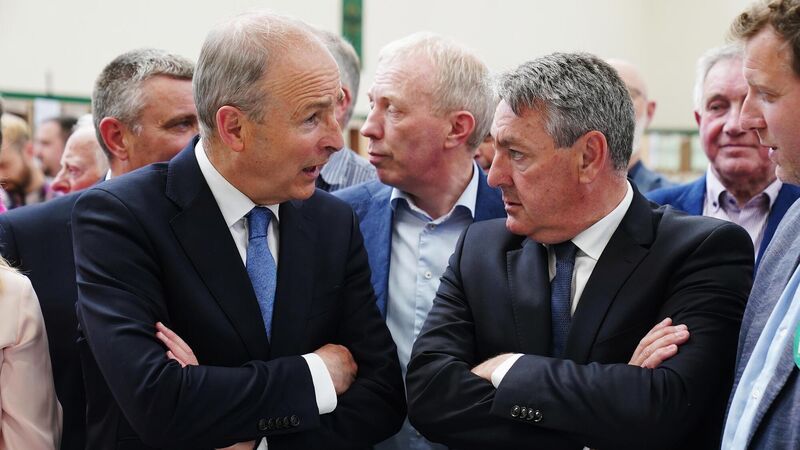
Micheál Martin and Billy Kelleher at the European election count in Nemo Rangers GAA club last year.
THE ancestors of Dubhghlas de hÍde, our first president, came from Castlehyde, outside Fermoy, but if Billy Kelleher is elected the 10th president of Ireland — assuming he gets the Fianna Fáil nomination despite the wishes of his party leader — the Glanmire man will be the first president to actually come from the Rebel County.
Tommy Tiernan once imagined the scenario of a president of Ireland who is from Cork, and “the holy mortifying shame” of that president addressing the United Nations.
“I’m the president of Ireland,” Tommy intoned, in an accent reminiscent of a strangulated donkey with a bad head cold, “but more importantly, I’m from Cork.”
Asked if there would be a touch of Tommy Tiernan’s “more importantly, I’m from Cork” to a Kelleher presidency, the Ireland South MEP laughed and said he would always be proud of where he comes from and would, if elected, be even more proud to be president of Ireland.
“Your roots are obviously always part of who you are, and where you come from helps to make you,” he said, adding that his 32 years as a senator, TD, and MEP has given him a great appreciation of the entire country.
“I am, all my adult life, a public representative. I was a frontbench spokesperson for Fianna Fáil for seven years. I traversed the entire country, meeting community groups, health groups when I was a spokesperson for health, enterprise groups when I was minister of state for enterprise. I travelled on behalf of our country, sometimes with the president, promoting Ireland on trade missions.”
He ran unsuccessfully for Fianna Fáil in Cork North Central in 1992, and in 1993 he was nominated to the 20th Seanad by then-taoiseach Albert Reynolds. Running again for the Dáil in 1997, he was elected in Cork North Central and was subsequently re-elected four times.
He served as a junior minister at the Department of Enterprise, Trade and Employment from 2007 to 2011, and he survived the electoral meltdown suffered by Fianna Fáil in the wake of the financial crash, going on to be the party’s director of elections in 2020.
Elected to the European Parliament in 2019, he has, since the full-scale Russian invasion of February 2022, been an outspoken supporter of Ukraine. He was re-elected in last year’s European elections.
The 57-year-old’s decision last Friday to put his name forward for the Fianna Fáil nomination to run as the party’s presidential candidate has not gone down well with his party’s leader.
At one time close allies, Mr Kelleher and Taoiseach Micheál Martin have been at odds for at least a fortnight, since Mr Kelleher called for the Fianna Fáil parliamentary party to meet urgently to discuss the presidency.
It has since become known that the party leader had intended to announce former Dublin football manager Jim Gavin as the Fianna Fáil candidate.
Since Mr Kelleher’s announcement on Friday, events have moved quickly, and not long after Pádraig O’Sullivan, the Glanmire man’s successor in Cork North Central, endorsed Mr Kelleher’s campaign, higher education minister James Lawless became the first parliamentarian to endorse Mr Gavin.
In the days since, the Taoiseach has endorsed the Dubliner, as have all of the Cabinet ministers from the 71 members of the Fianna Fáil parliamentary party. Even allowing that the nominee will ultimately be decided by secret ballot next Tuesday, Mr Kelleher is certainly campaigning as the underdog.
Asked by The Echo whether he was confident that he would have the numbers to secure his party’s nomination, Mr Kelleher said had been encouraged by the response he had received so far, and was going to fight on.
“I’m going to continue to speak to my colleagues, but I do believe there’s a sizable support for my position in terms of contesting this election,” he said.
Asked his vision for the presidency, he said his priority would be that his presidency would be “consensual”, adding that, globally, the broad discourse was funnelling people to “the extremes on the right and the left”.
“You can detect in broad discourse across the globe, people moving to the extremes on the right and the left, divisive discourse trying to divide people rather than bringing people together,” he said.
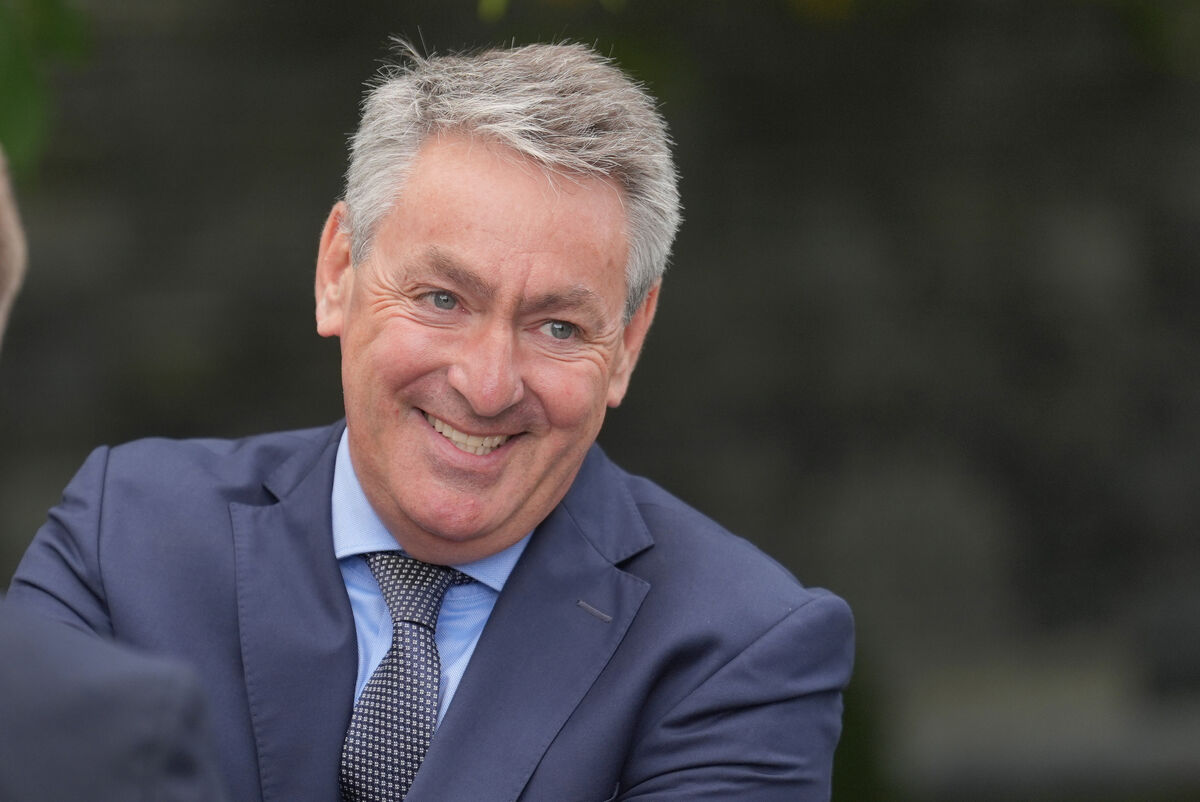
“And I think that the president would have an important role in sort of setting that template of dialogue.”
Fostering debate was something he had always been conscious of in his political life, Mr Kelleher said.
“It’s something that has been a value of mine, and I would put that as a core principle.”
Another area he said was of critical importance was projecting for Ireland a pro-European stance on the world stage.
“I think the president would have a very important role in ensuring that our voice is articulated, that we maintain those strong links in Europe.”
He added that with relations between the EU and the US currently strained, the president could use Ireland’s “very special, unique relationship that we have with the United States” as a bridge between the two.
Mr Kelleher noted that while there are constitutional obligations on the president, there are also constitutional restrictions which have to be adhered to, and the wisdom to know the difference would be a vital attribute for any president.
“The other area that I’d like to see the presidency play an important role in is we must have a dialogue on the island of Ireland about the different traditions in Ireland, especially in Northern Ireland. I’d like to see greater support and dialogue with cross-community groups.
“If I was elected, I hope that the Government of the day would allow and facilitate these ideas to take hold, so that we could work towards advancing Ireland, collectively, to be a better place for all of us,” he said. “Because at the end of the day, whatever role you play in public life, the overwhelming desire of an individual in public life is to leave things better than they found them.”
Asked whether he thinks we will see a united Ireland in our lifetimes and whether he would favour a border poll, as Sinn Féin has consistently called for, he did not directly answer either question.
“I think the first thing you have to do is to ensure that you are not seen as coercing or threatening traditions on the island,” he said.
“Obviously there is a democratic process set out in the Good Friday Agreement, but behind that, the most important thing is that we have dialogue, that we discuss, we extend the hand of friendship, not the fist of threat.
“I’ve never seen difference and division being settled by anything other than getting to know others, sitting down around the table and talking, and respecting, rather than threatening and intimidating.”
Mr Kelleher has been a public figure since he first ran in Cork North Central in 1992. Presidential elections tend to turn into a blood sport, with every aspect of a candidate’s life dissected. With that in mind, is there was anything that he would be concerned about that might come out?
Are there, for instance, any past utterances of his that he might like to get in front of now, rather than wait for them to come out?
“No, I believe all I’ve said by way of public comment in [the Dáil] and the European Parliament, and, you know, you must stand over your record,” he replied.
“There are always times you could do things better, with benefits of hindsight. But I think my public record, I believe, will stand in front of me in terms of being someone of fairness, of decency, of just trying to do the right thing with the means that were there in front of you at any particular time.
“I think any sort of reasonable assessment of my positions, the ones I held, the ones I was elected to, would stand up to scrutiny [in that] I tried to do the right thing at the right time for the right reasons.”
Finally, if he is nominated by Fianna Fáil, is he looking forward to the campaign?
“I am indeed, of course, yes. The immediate campaign, obviously, is within the parliamentary party, to speak to my colleagues, to outline my vision, to engage with them, and for the party to develop a vision of what it believes the presidency should be,” he said.
“After that, I want to be the candidate that can project that vision across the country when we are actively campaigning and reaching out to the people of the country.”
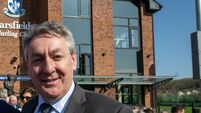
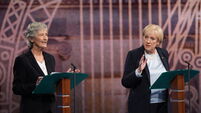
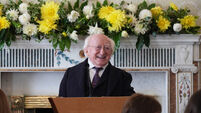

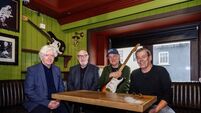

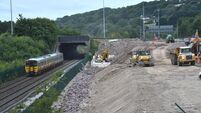



 App?
App?


